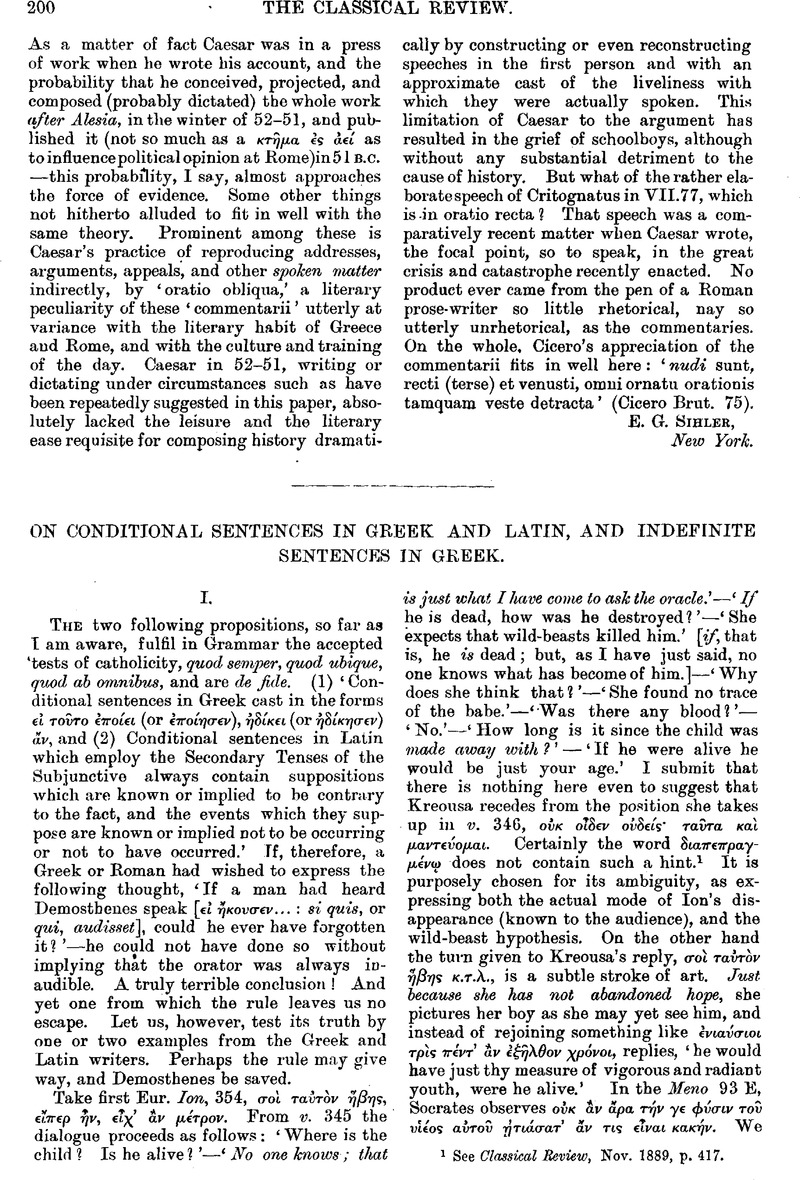Published online by Cambridge University Press: 27 October 2009

page 200 note 1 See Classical Review, Nov. 1889, p. 417.
page 201 note 1 It is independent knowledge too which guides the hearer as to the conclusion intended to be drawn from the hypothetical statement. Thue. i. 9 writes 
page 202 note 1 This explanation accounts for the use of 
